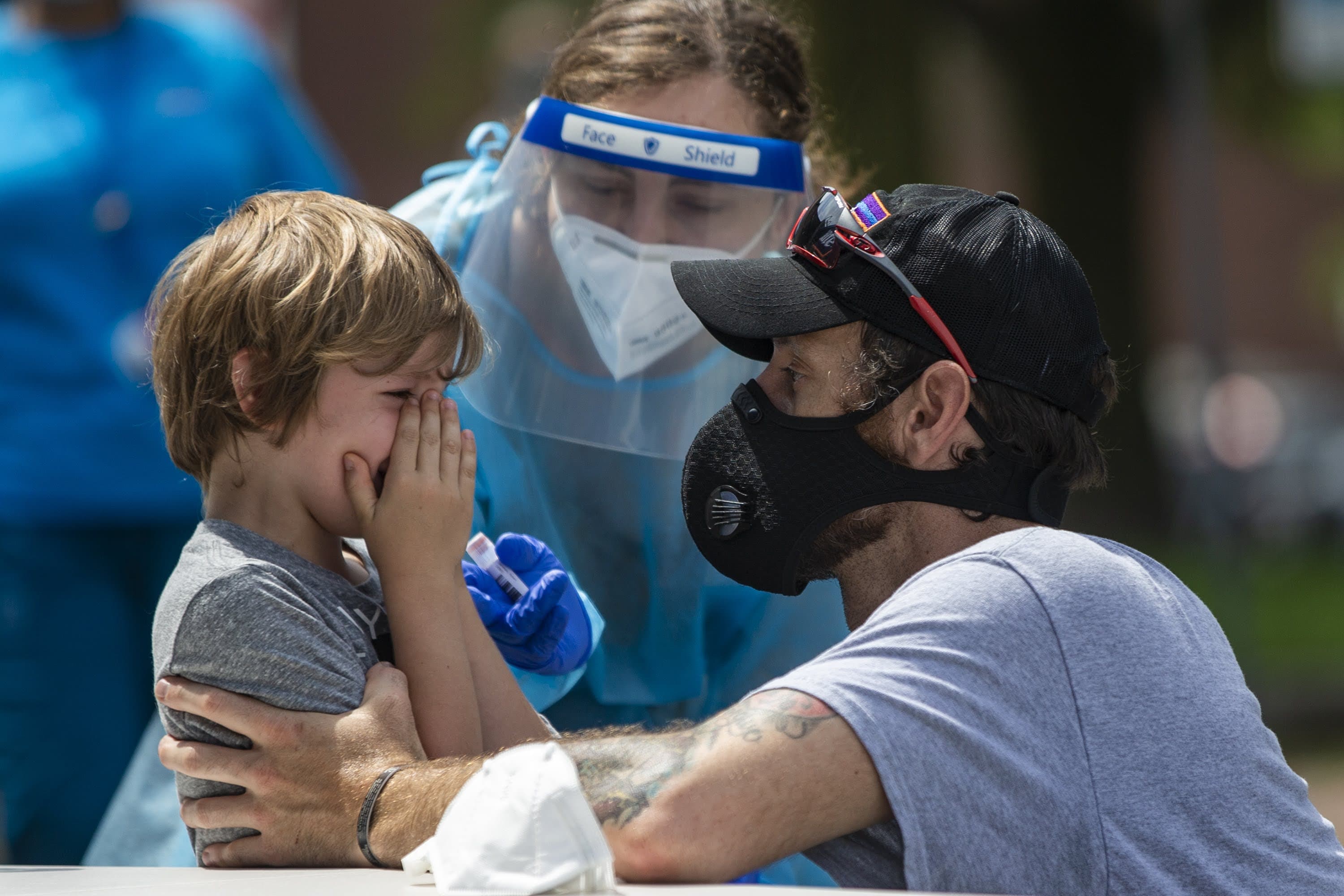Advertisement
Coronavirus Coverage
How Accurate Is Coronavirus Testing? It Depends On The Test You Take
Resume
Getting a coronavirus test in Massachusetts may be getting easier, but just how accurate the test you take depends on the type you get. One of the more common tests administered in the state provides a false negative result in nearly half of cases.
"We wish we had a fast and accurate test on the market, but that's not the case," says Dr. Shira Doron, infectious disease physician and hospital epidemiologist at Tufts Medical Center.
There are three types of coronavirus tests being done:
- Polymerise chain reaction, or PCR, tests, which look for genetic components of the virus;
- Antigen tests, which look for protein components;
- Antibody tests, which are blood tests that look to see if you have had the virus and developed immunities. Antibody tests are not widely used, so most people receive either a PCR or antigen test.
Although antigen tests are faster and can be scaled up quickly, they have a high false negative rate — in some studies as much as a 40-50% — and some recent research suggests they may produce an elevated false positive rate, too.
In Massachusetts, PCR tests are most often used. The state Department of Public Health lists all positive antigen tests as "probable" until the positive result is confirmed with a PCR test.
Doron says the benefit of the antigen test is it can be done quickly with a nasal or saliva swab, and the turnaround time for results is faster than many PCR tests. With so many labs and testing sites reporting backlogs due to greater demand in places experiencing dramatic upticks in cases, she says that quick turnaround is important.
Accuracy is also an issue for PCR tests and varies widely depending on its type and manufacturer. Doron says some PCR tests have been found to miss positive cases 30% of the time. She says for sicker patients, some hospitals use tests with a better track record, like the PCR test called the Abbott M2000 Realtime system.
"Overall, we can't give an accurate sensitivity of a test. We just don't have a perfect test."
Dr. Shira Doron
"We wish we had a fast and accurate PCR test on the market, but that's not the case," Doron says. "Proponents of fast testing say we need abundance over accuracy — perfection can be the enemy of the good, particularly if you're talking about asymptomatic people or decreasing the risk in a mass setting like a school. Where you're deploying testing widely to decrease the risk, it might be OK to use a less sensitive test. Overall, we can't give an accurate sensitivity of a test. We just don't have a perfect test."
Between pop-up testing sites, doctors offices, worksite testing and self-administered tests, most patients don't know what type of coronavirus test they're taking, either. Doron says that's important and patients should ask, especially if a test is related to an urgent health care issue.
"Many people are getting tested for travel and not a situation where the top priority is accuracy. It's just a paper-in-hand kind of thing," Doron explains. "In that case do whatever is cheapest, easiest and fastest. But if you're sick and worried about quarantining yourself and protecting loved ones, then you really need to know. Then it becomes more important to make sure you're doing a PCR test — and one with a track record of accuracy."
Many labs doing the testing have received emergency approval to speed up testing by doing what's known as "pool testing," where batches of samples are tested together. Unless there is a positive, the tests are not individually processed. Quest Diagnostics, which opened its Marlboro lab in March, has such approval.
This week, Quest said it received federal approval for a new technique that will help it more quickly extract viral RNA to speed up test processing. Quest says it has the capacity to process up to 135,000 tests per day.
Despite the questions about testing, Doron says she's confident that Massachusetts will have enough quick, fairly reliable processes to accommodate the influx of college students, as well as expected spikes in testing demand as the state phases in its reopening.
This article was originally published on July 30, 2020.
This segment aired on July 30, 2020.
